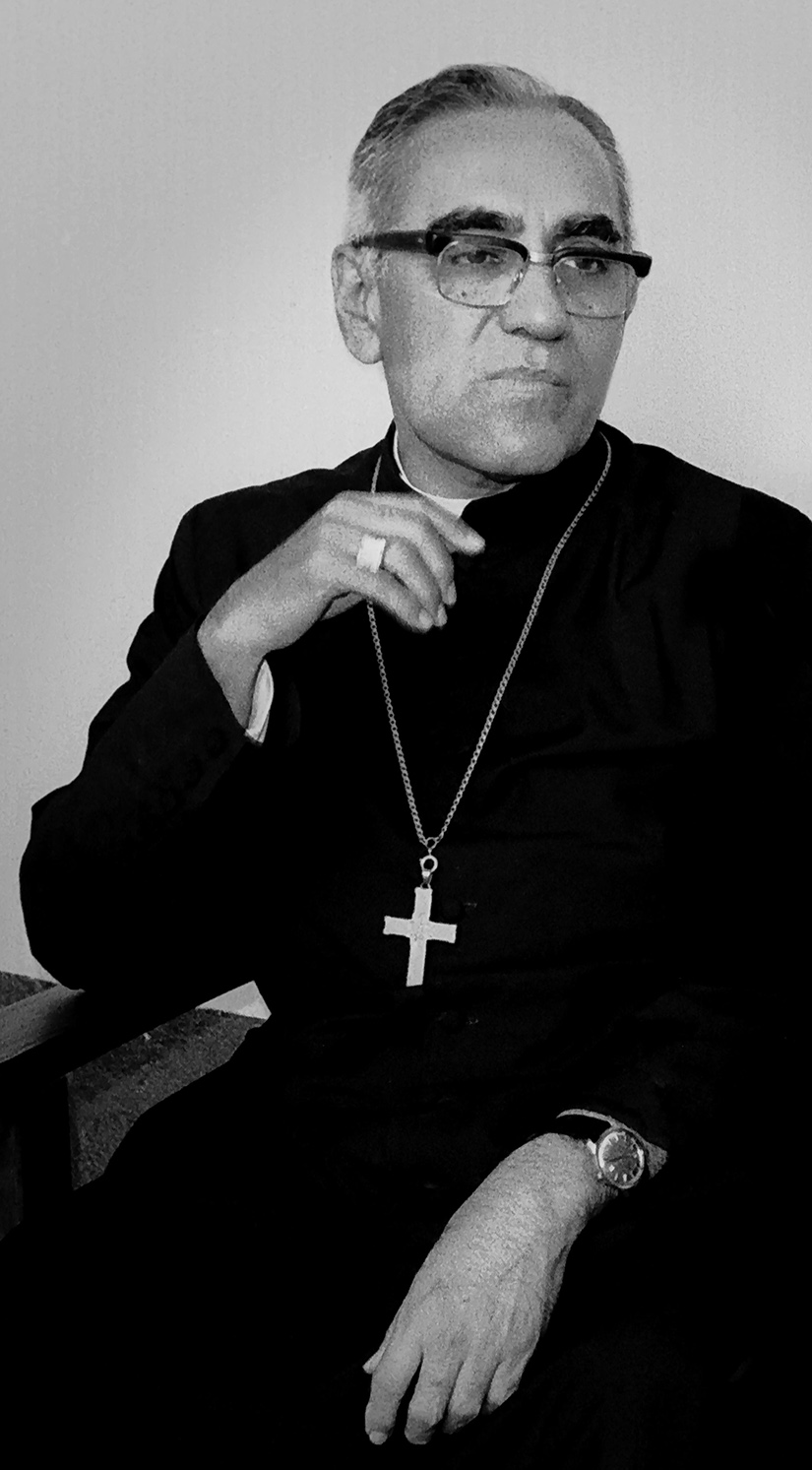 Then-Archbishop Oscar Romero is pictured in an undated photo in San Salvador, El Salvador. Photo Credit: Octavio Duran
Then-Archbishop Oscar Romero is pictured in an undated photo in San Salvador, El Salvador. Photo Credit: Octavio DuranAs the chief shepherd of El Salvador, Archbishop Oscar Romero’s focused on confronting pervasive violence. El Salvador had been ruled by the “coffee elite” since the late 19th century. A handful of wealthy families controlled virtually all aspects of Salvadoran economic and political life. Such disparity was inimical to human flourishing and led to widespread social decay. The instrument of the oppressive government — the national guard – inflicted devastating violence on the poor, and the revolutionary factions responded with widespread violence.
Archbishop Romero often was so often called to scenes of bodies in streets, alleys and garbage dumps, he said “It seems that my vocation is to go around picking up bodies.”
The murder of his friend Jesuit Father Rutilio Grande heightened his resolve to confront the injustices of these dark times. In a meeting in Rome with Paul VI, with whom he shared a photo of the murdered Father Grande, the pope encouraged him with a simple, but poignant, message of “courage.”
Archbishop Romero was called to navigate two extremes: people who were accusing the Church of being Marxist subversives and others who wanted to relegate the Church to a spirituality disconnected from the systematic and daily injustices of Salvadoran life. In a passionate homily, Archbishop Romero clarified: “This is what we preach. No to vengeance! No to class struggle! No to violence!”
In another homily, he offered the only adequate response to the dignity of the human person: “Let us not tire of preaching love; it is the force that will overcome the world. Let us not tire of preaching love. Though we see that waves of violence succeed in drowning the fire of Christian love, love must win out; it is the only thing that can.”
In a lengthy homily rich in scriptural and theological reflection given the day before he died, Archbishop Romero ended with a bold exhortation to the military: “Brothers: you are part of our own people. You kill your own campesino brothers and sisters… No soldier is obliged to obey an order against the law of God…In the name of God, and in the name of this suffering people, whose laments rise to heaven each day more tumultuous, I beg you, I beseech you, I order you in the name of God: Stop the repression!”
The next day — March 24, 1980 — an assassin shot Archbishop Romero as celebrated Mass for Carmelite sisters at Divine Providence Hospital in San Salvador.
Archbishop Romero modeled for us love, especially of the poor Salvadoran people, and courage to live the demands of the Gospel, ultimately to the death.
He is a model intercessor of hope amid the difficulties of life.